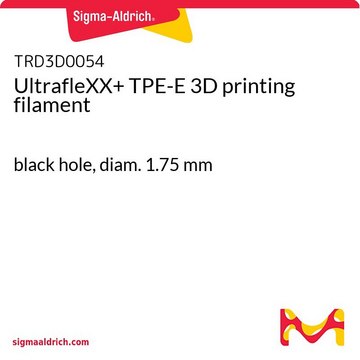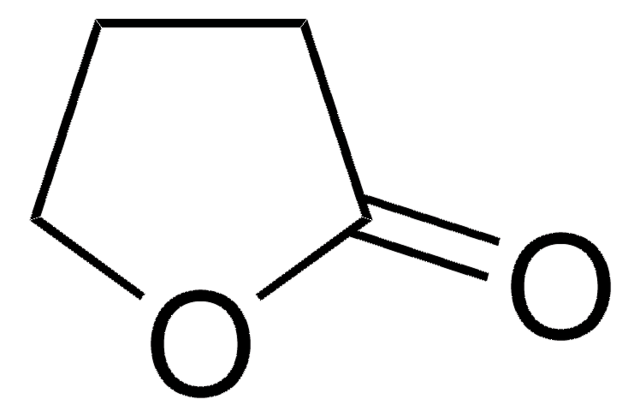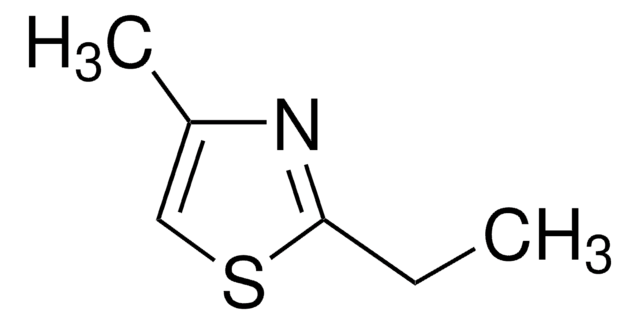W354503
Ethyl 3-hydroxyhexanoate
≥98%, FG
Synonym(s):
3-hydroxyhexanoic acid ethyl ester, Ethyl 3-hydroxy caproate
About This Item
Fragrance grade
Halal
Kosher
meets purity specifications of JECFA
Recommended Products
biological source
synthetic
Quality Level
grade
FG
Fragrance grade
Halal
Kosher
Agency
follows IFRA guidelines
meets purity specifications of JECFA
reg. compliance
EU Regulation 1223/2009
EU Regulation 1334/2008 & 178/2002
Assay
≥98%
refractive index
n20/D 1.428 (lit.)
bp
90-92 °C/14 mmHg (lit.)
density
0.974 g/mL at 25 °C (lit.)
application(s)
flavors and fragrances
Documentation
see Safety & Documentation for available documents
food allergen
no known allergens
fragrance allergen
no known allergens
Organoleptic
grape; green; citrus; fruity; sweet
SMILES string
CCCC(O)CC(=O)OCC
InChI
1S/C8H16O3/c1-3-5-7(9)6-8(10)11-4-2/h7,9H,3-6H2,1-2H3
InChI key
LYRIITRHDCNUHV-UHFFFAOYSA-N
Related Categories
General description
Application
- Novel Antiviral Activity of Ethyl 3-Hydroxyhexanoate Against Coxsackievirus B Infection.: Discusses the potential antiviral properties of Ethyl 3-hydroxyhexanoate, positioning it as a candidate for therapeutic use against Coxsackievirus, with implications for pharmaceutical applications and virology (Olasunkanmi et al., 2022).
- RIFM fragrance ingredient safety assessment, ethyl 3-hydroxyhexanoate, CAS Registry Number 2305-25-1.: A comprehensive safety assessment of Ethyl 3-hydroxyhexanoate used in fragrance formulations, emphasizing its toxicological profile and safe usage in consumer products (Api et al., 2020).
Storage Class Code
10 - Combustible liquids
WGK
WGK 3
Flash Point(F)
201.2 °F - closed cup
Flash Point(C)
94 °C - closed cup
Personal Protective Equipment
Choose from one of the most recent versions:
Already Own This Product?
Find documentation for the products that you have recently purchased in the Document Library.
Articles
It seems that more and more consumers are demanding fragrance-free products, be it for household cleaning or personal care. Some believe that in doing so, they are purchasing a more natural product.
Our team of scientists has experience in all areas of research including Life Science, Material Science, Chemical Synthesis, Chromatography, Analytical and many others.
Contact Technical Service








